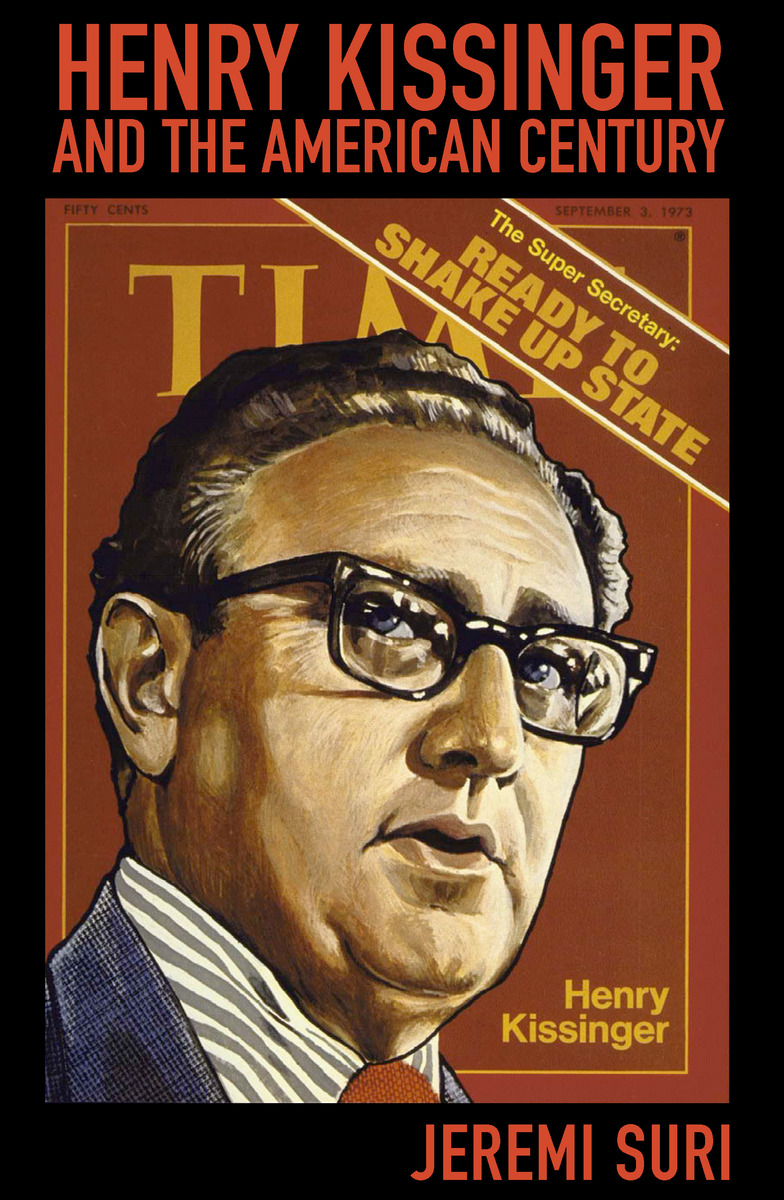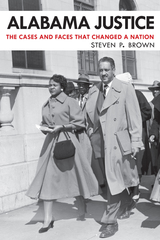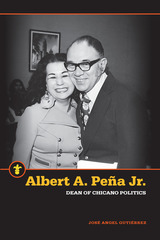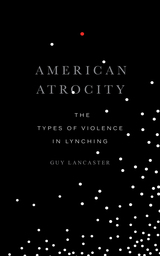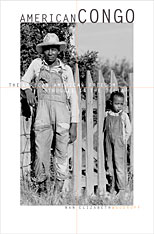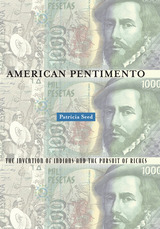This book is different from every other book about Henry Kissinger. In tracing the influences on Kissinger, from his life as a boy in Germany to his rise as one of the most powerful diplomats in the world, Suri's book is critical to our understanding of how and why Kissinger acquired his positions.
-- Melvin R. Laird, former Secretary of Defense
Suri has provided a brilliant and balanced portrait of Henry Kissinger. Shaped by his childhood in Germany, his adolescence in New York, and his wartime experiences in the army, Kissinger was forever the outsider, indelibly influenced by his Jewishness, even as he became the consummate insider. Suri incisively analyzes the qualities that made Kissinger so attractive to patrons like Nelson Rockefeller and Richard Nixon, but also skillfully examines the flaws that will forever tarnish Kissinger's legacy.
-- Melvyn P. Leffler, author of A Preponderance of Power
This remarkable book is far more than a biography of Henry Kissinger. By probing Kissinger's personal background and intellectual formation as well as his often cunning and frequently controversial statecraft, Jeremi Suri brilliantly illuminates both the character of Kissinger the man and the nature of the turbulent and tension-racked age in which he lived and did so much--for better or worse--to shape.
-- David M. Kennedy, author of Freedom from Fear
Probing thoughtfully into Kissinger's background and character, Suri sees the secretary as the Cold War's ultimate statesman. Eschewing polemics...this work explores what shaped and nurtured the phenomenon that was Henry Kissinger.
-- The Atlantic
The archival research is extensive and the analysis thought-provoking. Although there are numerous studies of Kissinger, as well as his own memoirs, Suri's is the best at studying the man in terms of the social surroundings that influenced him.
-- Marcia L. Sprules Library Journal
Suri endeavors to explore the philosophical roots of Henry Kissinger's actions as national security adviser and secretary of state under President Nixon, finding those roots in a Jewish boy's experiences of a weak Weimar regime's fall to genocidal Nazism. At the end of the day, in Suri's account, Kissinger's philosophy boiled down to the need to back democracy with muscle...Kissinger did not support the brutality of the "regimes he supported in Chile, South Africa, and other parts of the Third World," Suri writes. But, the author acknowledges, he did "nurture personal relations with their leaders as strongmen who could mobilize force effectively against threats to themselves and the United States." At the close of that statement, Suri stumbles into the unpleasant truth of Kissinger's realpolitik.
-- Publishers Weekly
Henry Kissinger is arguably the most intriguing and countercultural global political figure of the 20th century...Suri's contribution to Kissinger scholarship is in the precision with which he delineates the influences that shaped Kissinger's world view. Focusing on the concept of Bildung, or inner cultivation that allows the individual to progress toward enlightenment, Suri outlines how Kissinger's intellectual development was informed by his appreciation of such transcendent leaders as Klemens von Metternich, Otto von Bismarck and Winston Churchill.
-- Harold Heft Montreal Gazette
The resulting book, refreshingly short compared with the thousands of pages devoted to the man--most of which he has written himself--is both unusual and fascinating...Suri is not interested in whom Kissinger met with as national security advisor (from 1969 to 1973) or secretary of state (1973 to 1977), when he met them or even the minute details of what was discussed. In fact, he spends few pages on Kissinger's actual time in office. What he wants to get to the bottom of is why Kissinger is Kissinger, or, as he puts it, "I focus not on what Kissinger did, but on why he did it." Suri also tries to put the man in context, explain how the demands of the Cold War world facilitated the rise of such an outsider to American power...Given how hard Kissinger has tried to obscure his origins and make himself and his ideas seem exceptional, it's a little jarring to realize how much he is simply the result of historical circumstances that shaped not only him but millions of others of his generation, as well...One can probably do no better than Suri's portrait of Kissinger's mind.
-- Gal Beckerman Forward
A useful, idiosyncratic study...Suri's Kissinger is an academic rumination on the cerebral Harvard professor-turned-showboating national security adviser that, while intentionally narrow in scope, is bold in its reach.
-- David Greenberg Washington Post Book World
This is a readable and provocative book that successfully explores the formation of its subject's worldview and rise to power. Suri is at his best when demonstrating the roots of Kissinger's distrust of mass democratic politics, his obsession with strong leaders, his emphasis on the limits of American power and his disdain for the "insular self-righteousness" and "utopianism" of reformers "advocating a vision of global democracy."...[A] timely book.
-- Eric Arnesen Chicago Tribune
Nobody will ever accuse Jeremi Suri of lacking style or insight. His study of Henry Kissinger's personality and place in history offers piercing originality--so much so that laying down Dallek for Suri feels rather like that moment in The Prince and the Showgirl when Laurence Olivier, after telling all and sundry that they have too little love in their life, meets his ex-mistress...and realizes that she has too much.
-- David Frum National Review
Offer[s] some fresh glimpses of [Kissinger's] motives and personality on display in high office.
-- G. John Ikenberry Foreign Affairs
Drawing on research worldwide in addition to extensive interviews with Kissinger and others, Suri analyzes the sources of Kissinger's ideas and power and explains why he pursued the policies he did.
-- Times Higher Education Supplement
An interpretation of his life that stands out among recent books on the subject for the extent and the depth of the author's research. Unlike Hitchens (to say nothing of Robert Dallek and Margaret Macmillan, two other writers who have recently published books critical of Kissinger), Suri has done some real digging before rushing into print...This is surely the best book yet published about Henry Kissinger...Unlike so many previous writers--particularly those journalists steeped in the blood of the Nixon administration--Suri actually makes an attempt to understand his subject in the appropriate historical context rather than simply joining in the never-ending hunt for "smoking gun" quotations.
-- Niall Ferguson Times Literary Supplement
[Suri] has written a quite different, bracingly original book about history's impact on Kissinger. Using extensive archival research and interviews with Kissinger, Suri shows us for the first time how Europe's nadir in the 1930s forged a mind that would define the course of American foreign policy...Adeptly executed, Suri's portrait of the statesman as a young man enlivens the stale fare of academic Kissingerology. This is a book that should be read not only by historians but also by general readers with an interest in international affairs...Suri has offered a disarming character statement, a testimony that will oblige readers to comprehend the stateman's complicity in terms of the tropubles that history has rested upon him. In itself, that is an important accomplishment.
-- Daniel Sargent Times Higher Education Supplement
This provocative, evenhanded study examines how Henry Kissinger's background--particularly youthful memories of the failure of German democracy to respond to Nazism--influenced his diplomacy.
-- A. J. Dunar Choice
[Suri] argues that Kissinger was the first true global diplomat...This is a thoughtful and readable biography of a hugely influential statesman.
-- Bruce Elder Sydney Morning Herald
